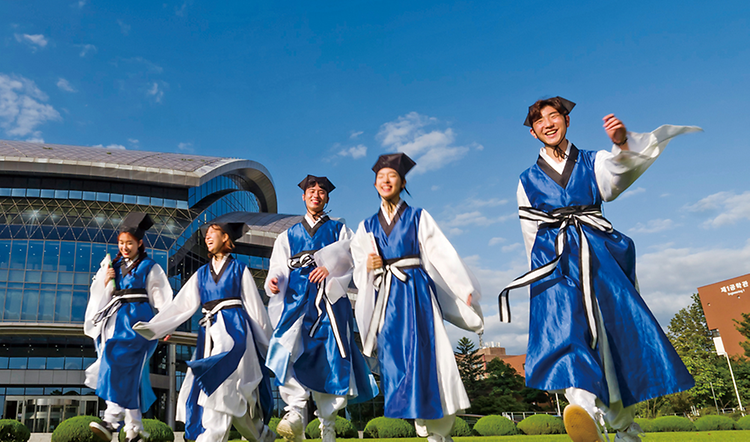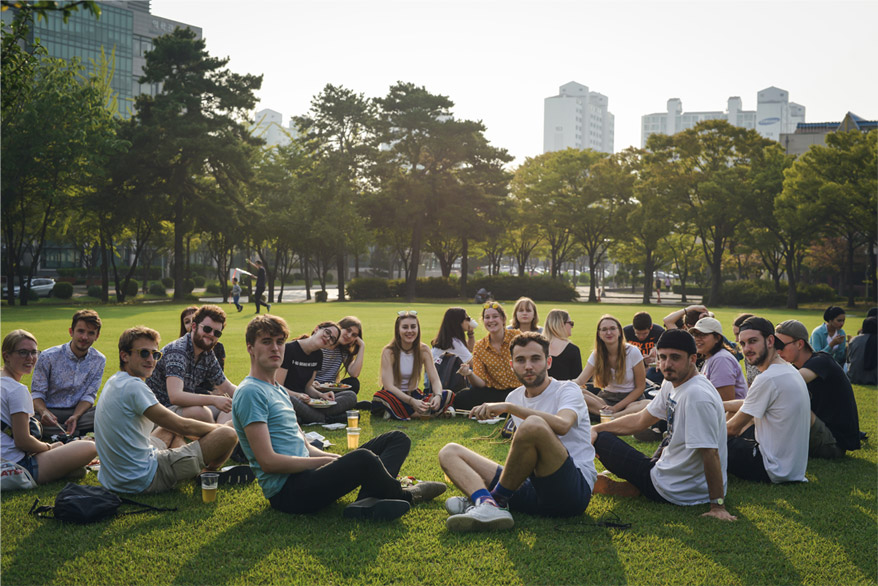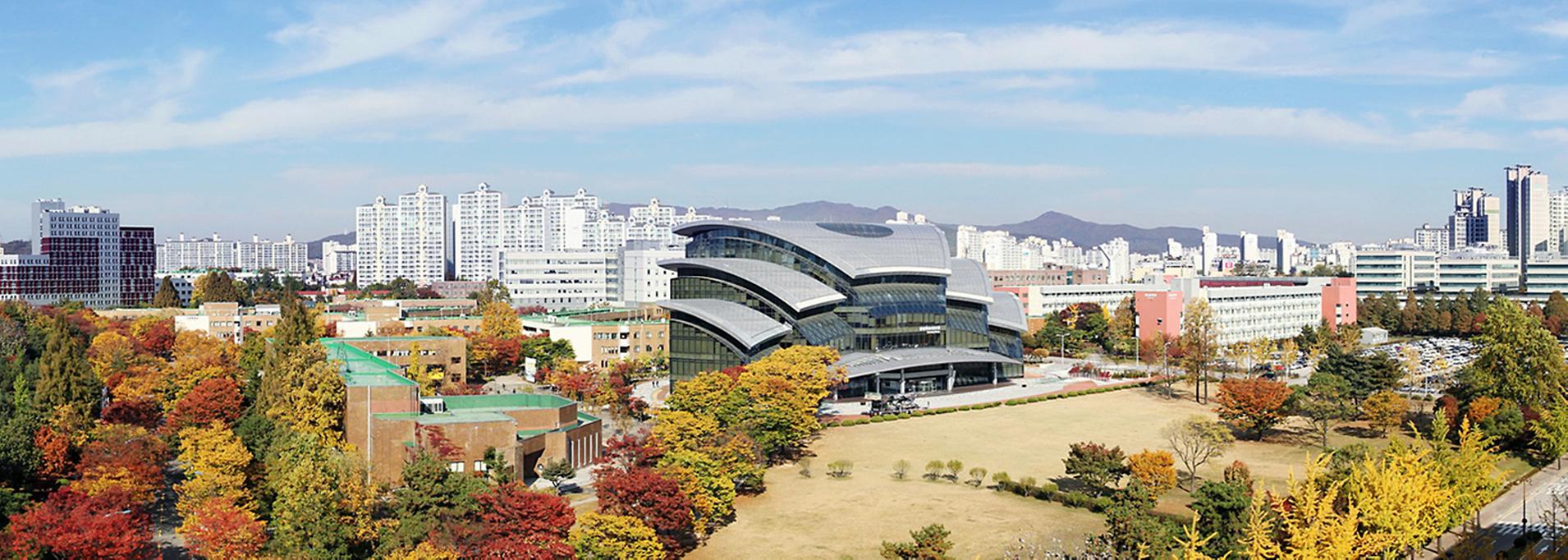The number of international students at Korean universities has steadily increased in recent years due to the popularity of Korean culture. Although Sungkyunkwan University (SKKU) is known to be one of the best Korean universities for international students, discussions surrounding international students’ hardships at SKKU remain consistent. Thus, the Sungkyun Times (SKT) will examine why international students choose Korea, their experiences and hardships at SKKU, and suggest ideas for a more inclusive environment.
International Students in Korea
Why Study in Korea?
According to the Ministry of Education, Science, and Technology, the number of international students in Korea has steadily increased since the early 2000s. Compared to about 84,000 students in 2014, the number increased to 154,695 in 2020. As many of Korea’s universities have started to mandate offline classes this year, it is estimated that the number will only continue to increase. A 2021 survey by Life Magazine revealed that out of 100 international students, most decided to move to Korea due to interest in K-pop or K-dramas. The survey also states that students would initially visit Korea for its pop culture but then choose to stay out of interest in Korea’s deeply rooted history and tradition. Furthermore, Korea is a leading Information and Communication Technology (ICT) powerhouse, which may seem attractive to international students. Korea is undoubtedly an attractive country to study in with its long history, the current popularity boom in media, and the country’s optimistic future in the global market.
What SKKU Provides
SKKU encompasses both Korea’s tradition and modernity. As the perfect mixture of the country’s past and the future, it is a globally leading university with international students from over 80 countries. Following its popularity amongst international students, SKKU’s Office of International Student Services (ISS) provides various resources and support. These resources help international students to settle in more efficiently, from international student visas to alumni network support. The website’s information is also translated into English, Chinese, and Japanese. Moreover, the ISS provides international students with programs to experience Korea’s nature and history. For example, in June, the ISS hosted a program where 37 international students from over 15 countries had a chance to experience Korean nature; this, alongside many other programs, is merely the start of SKKU’s excursions for international students. Finally, first-year international students are provided with an Intensive Study Course (ISC), which they must attend for two semesters. The ISC is divided into 13 courses, including “Korean Culture and Language” and “Understanding of Advanced Communication.” International students can gain a better insight into Korea through the ISC.

International Students at SKKU
The Struggles of Settling In
Despite SKKU’s efforts, international students still tend to struggle with settling in due to cultural differences. Although the one-day program exploring Korean heritage is a wonderful experience, it is not a solution for long-term hardships. The aspects of Korea that students expected tends to be very different from what they experience. Also, no documents or classes teach one how to overcome such minor cultural differences. These challenges in trying to fit in with Korean students make a significant obstacle for an international student trying to enjoy campus life. For example, the different language formalities depending on the interlocutor’s age are hard to find in most other countries, and many find it hard to adapt to such a culture. Another cultural difference could be the way one expresses themselves through their clothes. While there is a particular “normal” look in Korea, foreigners often already have their own “unique” style from their home country. It might be easier for international students to become a target of discrimination because Korean students tend to wear very similar clothing. A woman wearing a hijab might stand out among Korean students, and this could potentially and unfortunately lead to some kind of discrimination from students who are not used to experiencing such cultural differences. As well as differences in clothing, students who cannot eat certain foods based on their religion struggle to find restaurants in or near SKKU. For instance, students who eat halal food have to go through the burden of going off-campus to find a suitable restaurant each time they want to grab a meal. Such circumstances make it difficult for religious students to intermingle with other students as they have less time and accessibility to interact with others. Thus, international students inevitably choose to stay with students from their own country to avoid minor conflicts, which takes away one of the major purposes of studying abroad.
The Overbearing Height of Language Barriers
Since international students are being swayed away from local students, it limits their opportunity to learn about Korea and its culture. With the language barrier, international students often find it hard to interact with Korean students. Not only do such circumstances lower their self-esteem, but they may also even become a reason to give up on the language entirely. For instance, an international student who was a part of one of SKKU’s student clubs stated in an interview, “I felt like a burden most of the time. There were obvious barriers in communication, and most problems seemed to start with me.” These students who struggle to learn the Korean language often register for courses taught in English. However, opportunities for international students to interact with Korean students decreased after the English-taught courses became optional. Now, fewer Korean students choose to sign up for English-taught classes. Ironically, the students who came to Korea to learn Korean and enjoy a different campus life tend to be excluded for not having learned Korean beforehand.

How SKKU Can Improve
Making SKKU Our Second Home
Local students must remember that international students are also SKKU students. Rather than overgeneralizing, there is a need for genuine curiosity from local students toward international students. Also, there should be a communication channel where international students can voice their struggles regarding settling in and any issues they could encounter with discrimination. The process of spreading awareness and allowing international students to share their experiences could be aided by the student press. For example, applying to be a guest reporter at the SKT could be an opportunity for international students to write about their experiences in coming to Korea, as well as their own cultures. Moreover, the school must develop new policies to help ease settling in. Vegan meals in the cafeteria must be reintroduced for religious and cultural inclusivity. Reducing the community’s reluctance towards cultural differences is crucial in creating a more inclusive environment. Lastly, providing resources for local Korean students to read about different ethnicities and religions may reduce the burden on some international students; they may not have to go through the process of explaining themselves every time they meet new people.
Breaking Down the Language Barrier
Settling into a new country is never easy, even if one tries to immerse oneself in the culture. To make this process easier, the school should provide a way for local and international students to interact naturally. SKKU currently provides programs for exchange students, including the “Friends Program,” which allows exchange students to be matched with local students. The local students receive volunteering hours by participating in this program, through which they can communicate and interact with exchange students. There is also the HI-CLUB, the student association for exchange students, which runs similarly to the “Friends Program.” If international students could also communicate with local students through such programs, it would be more effective than learning Korean in a classroom. Likewise, there must also be a program or a club for international students. The gap between the local and international students must be closed, and there needs to be a better understanding formed between different cultures.

The number of students crossing the seas with only their love and passion for Korea is increasing yearly. SKKU’s efforts to thoroughly guide these students to indulge in the Korean experience are highly valued. However, international students are still struggling with misunderstandings and cultural maladjustments. International students do not owe local students an explanation for their cultural differences, and the responsibility of local students is to help them feel at home. If you are a local Kingo, the next time you encounter an international student, how about considering how you, as a local Kingo, could help them see the Korea they have been longing to see?
